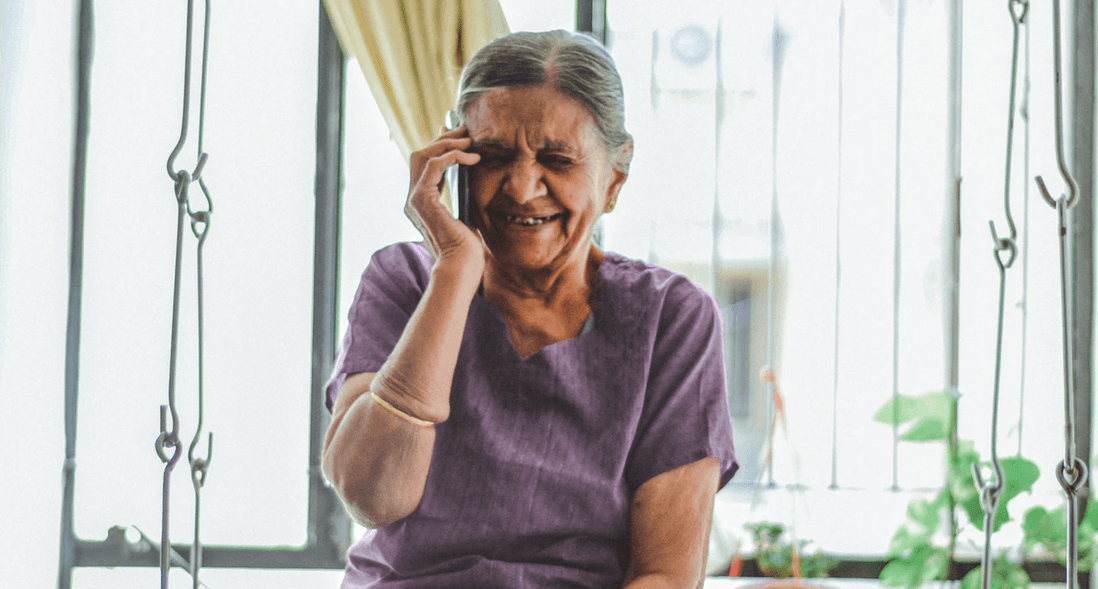 You or a loved one may be struggling with alcohol or drug addiction and may feel like everyone is against you. It might seem like you have nowhere to run to for help and that no one is willing to listen. These feelings are normal, but they are nowhere close to the reflection of the truth.
You or a loved one may be struggling with alcohol or drug addiction and may feel like everyone is against you. It might seem like you have nowhere to run to for help and that no one is willing to listen. These feelings are normal, but they are nowhere close to the reflection of the truth.
Though the situation looks hopeless, there are resources you could use to learn more about addiction treatment and facilities in your location. What’s even better, you could go through the process on your terms.
The first step to living a sober life is admitting that you need help by calling an addiction hotline. In this piece, we shall review everything you need to know about addiction hotlines, why they are important, and how you or a loved one can benefit from them.
Contents
- 1 What is an addiction hotline?
- 2 Addiction hotlines in the US
- 3 Should I call an addiction hotline?
- 4 The treatment options
- 5 How do you call an addiction hotline?
- 6 Questions you can ask the addiction hotline specialist
- 7 When should I not call an addiction hotline?
- 8 Verdict
- 9 FAQs
- 9.0.1 Can I get in trouble for calling an addiction hotline?
- 9.0.2 Do I need health insurance to call an addiction hotline?
- 9.0.3 Can I start rehab immediately after the call?
- 9.0.4 How long will additional treatment take?
- 9.0.5 Can I go to jail for calling an addiction hotline?
- 9.0.6 Why should I not call addiction hotlines during emergencies?
What is an addiction hotline?
An addiction hotline is simply a telephone number you can call to get free information on the different drug addiction resources and options available in your area. Many people who man these hotlines have gone through the recovery process or have helped a loved one through the treatment process. Because they have experienced the effects of addiction, they are driven to help you find your light and calm in the storm. For the few who haven’t experienced it in their lives, they undergo training to ensure they are empathic and understand your situation.
All addiction hotlines have the same mission, but they vary slightly in their implementation. Overall, the top addiction hotlines have the below qualities.
- Their phone lines are manned 24/7 – most hotlines have a live person answering the phone. Addiction is serious, and they treat it as such by leaving nothing to chance. Using an answering machine could be the deciding factor between someone choosing treatment or backing out.
- They are toll-free – regardless of your location, the call is free.
- You get connected to a hotline specialist – the receiver is trained to gather facts about your level of drug abuse and addiction before discussing the different treatment options available. The specialist will actively listen and seek to understand your point of view with empathy, compassion and non-judgment.
- The calls are anonymous and confidential – though the specialist will need details on your addiction, they will not get the specifics of your identity. But if you choose to disclose your identity, rest assured you’ll remain anonymous. Everything discussed on the hotline is confidential, and the organization is not at liberty to share it with a third party. You can think of it like doctor-patient confidentiality.
- They help loved ones too – yes, you don’t need to be the addict to benefit from these services. Anyone can call provided they genuinely need help for themselves, a friend or a family member.
Note: Like regular products and services, hotlines are made for specific populations and offer different services to those who call. But at the end of the day, they all want one thing – to guide those struggling with addiction or its effects to get help.
Addiction hotlines in the US
Below are the top and most popular addiction hotlines in the US.
SAMHSA
Substance Abuse and Mental Health Services Administration is a US Government agency within the Department of Health & Human Services. SAMHSA takes the lead on matters of public health with a mission to take behavioral health in the US to the next level. SAMHSA was put together to help in reducing the impact substance abuse has on individuals and also help with mental illnesses.
Their hotline is 1-800-662-HELP (4357). Through the hotline, they will provide you with information about addiction and also refer you to addiction resources and services that can help you or your loved one. The services are in Spanish and English.
Partnership for a Drug-Free America
This is a national non-profit organization that is committed to supporting families as they wade through the unchartered waters of substance abuse. In addition to providing recovery options, they also help with prevention.
The addiction hotline for caregivers and parents is 1-855-DRUG-FREE (378-4373). This service is only available during regular business hours.
National Council on Alcoholism and Drug Dependence (NCADD)
This body has served communities in the US for more than seven decades. Over these years, it has proven to be an invaluable resource to millions of people struggling with addiction. Currently, the organization has over 90 addiction treatment facilities in the US. In addition to treatment, these facilities also offer advocacy for families, individuals and the communities affected by addiction.
Their hotline is 1-800-NCA-CALL (622-2255).
Should I call an addiction hotline?
 If you are contemplating calling an addiction hotline, you should go ahead. You will be surprised at how much information you can get in a single phone call. Taking the time to learn and understand addiction signs can help you make an objective decision without guesswork.
If you are contemplating calling an addiction hotline, you should go ahead. You will be surprised at how much information you can get in a single phone call. Taking the time to learn and understand addiction signs can help you make an objective decision without guesswork.
You or a person dear to you might be struggling with substance abuse or addiction if:
- The substance in question is used regularly and in increasing dosage over time.
- One needs a lot of the substance to experience the same results as before.
- It proves difficult to stop using despite trying seriously to stop.
- The substance is used every time, regardless of the risk involved.
- One is willing to go to great lengths to get their hands on the substance.
- One has a strong urge (at times even uncontrollable) to use the substance.
- Education, home and work responsibilities cannot be completed effectively without using the substance.
- There is a loss of interest in things one previously enjoyed including hobbies.
- One experiences mild to severe withdrawal symptoms when they reduce the dosage or cease its use.
If you are wondering whether you struggle with substance abuse or you have an addiction, the above list should clear things up. Having even two of the above tell signs means you fit the criteria, and you should call an addiction hotline today. Remember, substance abuse or addiction will negatively impact the life of the addict and those close to them
The treatment options
The intensities, locations, duration of addiction program and types are vast. Yes, in a seemingly hopeless situation, there are numerous options to explore. With these options, you will find the ideal program for yourself or a loved one. Though the treatments are different, they use a combination of basic treatments to;
- Improve on the healthy life skills of individuals
- Modify the behaviors and thoughts around substance abuse and addiction
- Actively remain sober
At the start of every treatment, the addict will undergo an evaluation that collects data on the following areas:
- The substance(s) being abused.
- Frequency, duration of use, and dosage.
- Stressors and support systems at home.
- Co-occurring mental and medical health problems.
- The addiction history, past treatments, recovery and relapse.
The treatment teams then utilize the information collected to develop a treatment plan unique to the individual. This treatment considers the unique situation and substance abuse for the best results. Facilities stress on individualized plans because of the range of treatment options available. Also, because some treatments work better than others depending on the factors described above.
Below are some of the top addiction treatments you might have to choose from.
Residential/inpatient treatment – these are by far the most intensive addiction treatments available. They remove individuals from their normal environment and place them in closed facilities with 24-hour staff. In these treatment programs, the individual gets a lot of attention as they work towards recovery. Some examples of these program settings include:-
- Therapeutic communities – these programs last between 6 and 12 months. Therapeutic communities are designed to accommodate staff who help with addiction recovery.
- Short-term residential – these programs primarily focus on counseling and detoxification. They are ideal for individuals who are in their early stages of substance abuse or addiction.
Outpatient treatments – individuals in this type of treatment programs will go through the process at home and meet with treatment providers regularly. These options vary greatly and include:-
- Partial hospitalization programs – they are also called day treatments. The individual goes to a treatment facility five days a week for six-hour-long treatment sessions.
- Intensive outpatient programs – these treatments offer between nine and twenty hours of treatment sessions weekly.
- Standard outpatient – these programs involve an hour or a couple of hours of treatment every week. These treatment programs are the least intensive and can last for several years, depending on the need.
Regardless of the type of treatment program you choose, treatment centres also offer additional sessions for individuals, groups or families. The extra treatment care is to help improve the general state of the individual. The extra sessions are important for comfort because the road to recovery can be rough.
The extra care usually includes:
- Holistic treatments – these treatments include complementary or alternative options like yoga, meditation, therapy, and creative arts.
- Luxury treatment – it includes spa services, lavish accommodations and visits to premium locations.
- Executive treatment – this treatment allows the professional or entrepreneur to indulge in some work on their road to recovery.
- Dual diagnosis treatment – it is ideal for dealing with co-occurring mental health and addiction problems.
How do you call an addiction hotline?
Calling an addiction hotline is an easy process. You simply pick up the phone, dial the numbers and converse with the specialist. However, to guarantee a fulfilling experience, you should follow the calling process below.
- Step 1: Settle on an addiction hotline depending on your needs. There are many hotlines available, and as such, you should not shy away from making multiple calls. Worst case scenario, you will get a lot of valuable information from industry specialists. But if it’s an overdose case, you should call 911 instead.
- Step 2: After finding your ideal hotline, prepare a list of questions you’d like answered during the call. Do not be one of those people who get important information ad-lib. Preparing a list of questions beforehand will ensure the call is beneficial. After all, it probably took you time to gather the courage to make the call; it would be a shame to waste it. Moreover, having a list of questions with you helps you remain objective and composed throughout the call. Remember, you’ll be talking about a personal matter that cuts deep. It is easy to get over-emotional or upset if you aren’t prepared for it.
- Step 3: When the specialist answers the call, take a deep breath and remain composed. If you need to, sip some water throughout the call so that your throat doesn’t dry up and cause your voice to seize.
Questions you can ask the addiction hotline specialist
So what types of questions should you prepare? Honestly, coming up with a comprehensive list at such a time can be an uphill task. To help get you started, below are some sample questions.
- How much rehabilitation cost?
- Are residential/inpatient treatment programs available in my area?
- Do I need medically aided detox? How long will it last?
- What form of payments do the rehabs accept?
- Do rehabs accept medical insurance?
- Do I qualify for free addiction resources in my locale?
- How can I assist a family member struggling with addiction?
- I have co-occurring health issues. Will these affect where I take my treatment and the treatment program I enrol?
When should I not call an addiction hotline?
Addiction hotlines are in place for a serious reason – to help substance abusers and addicts get better. You are encouraged to call these hotlines at any time unless:
- It is a prank call.
- You are sober and don’t have an addict in your life.
- It is a case of an overdose, an allergic reaction or any other emergency. In these cases, always call 911 and seek addiction help once the individual is in the clear.
Note: prank calling addiction hotlines potentially puts the life of another serious caller at risk.
Verdict
Addiction starts slow and creeps up on you. If you notice changes in your behavior or that of your loved one, you should call the addiction hotline. You will get information on the next steps to take before the situation get dire. Yes, it could always get worse, so acting now is better than later.
You can enroll in any treatment program that suits your case, and that will yield the best results. Remember, even the best addiction treatment facilities will yield minimal results if you do not commit to it. Also, how long the treatment takes depends on how long you’ve been addicted, the dosage of substance abuse and the type of addiction. Always be open to change for a fully transformative experience.
FAQs
Can I get in trouble for calling an addiction hotline?
This might be a concern, especially for individuals abusing illegal substances. For those addicted to not-illegal substances, the worry might be losing their job when word gets out. Luckily, you can put your worries to rest because addiction hotlines keep the conversations confidential. Also, since many specialists have struggled with addiction, they are sympathetic and focus on helping you get better.
Do I need health insurance to call an addiction hotline?
Addiction hotlines offer free referrals to addiction treatment services. It’s therefore not mandatory for individuals to have health insurance before making the all. If you are uninsured, many hotlines will refer you to state-funded facilities aside from state-funded facilities; you can also request for referrals to facilities that accept Medicaid insurance.
Can I start rehab immediately after the call?
Addiction hotlines are about providing you with information that will help you in your road to recovery. So if you wish to start addiction treatment immediately, you can. It will, however, be your choice. The specialist will not force you into making the decision. Whatever you choose to do with the information they provide is up to you.
How long will additional treatment take?
The length of treatment depends on the type, the level of substance abuse/addiction, and how willing you are to stick to the program. It can take anywhere from a couple of weeks to several years.
Can I go to jail for calling an addiction hotline?
No, you cannot. The hotline conversation is confidential. As such, the information cannot land you in trouble with the criminal justice system. And even if it did, you are trying to get help, and that counts for everything. On the flip side, not getting help can land you in all kinds of trouble including losing the custody of your children, falling out with your family and friends, losing your job, crime and even serving jail time.
Why should I not call addiction hotlines during emergencies?
Though the emergency may be related to substance abuse, you shouldn’t call an addiction hotline. Instead, you should call 911. This is because even the best hotlines aren’t well equipped to handle emergencies. Also, their personnel haven’t undergone medical training to handle emergencies efficiently.
